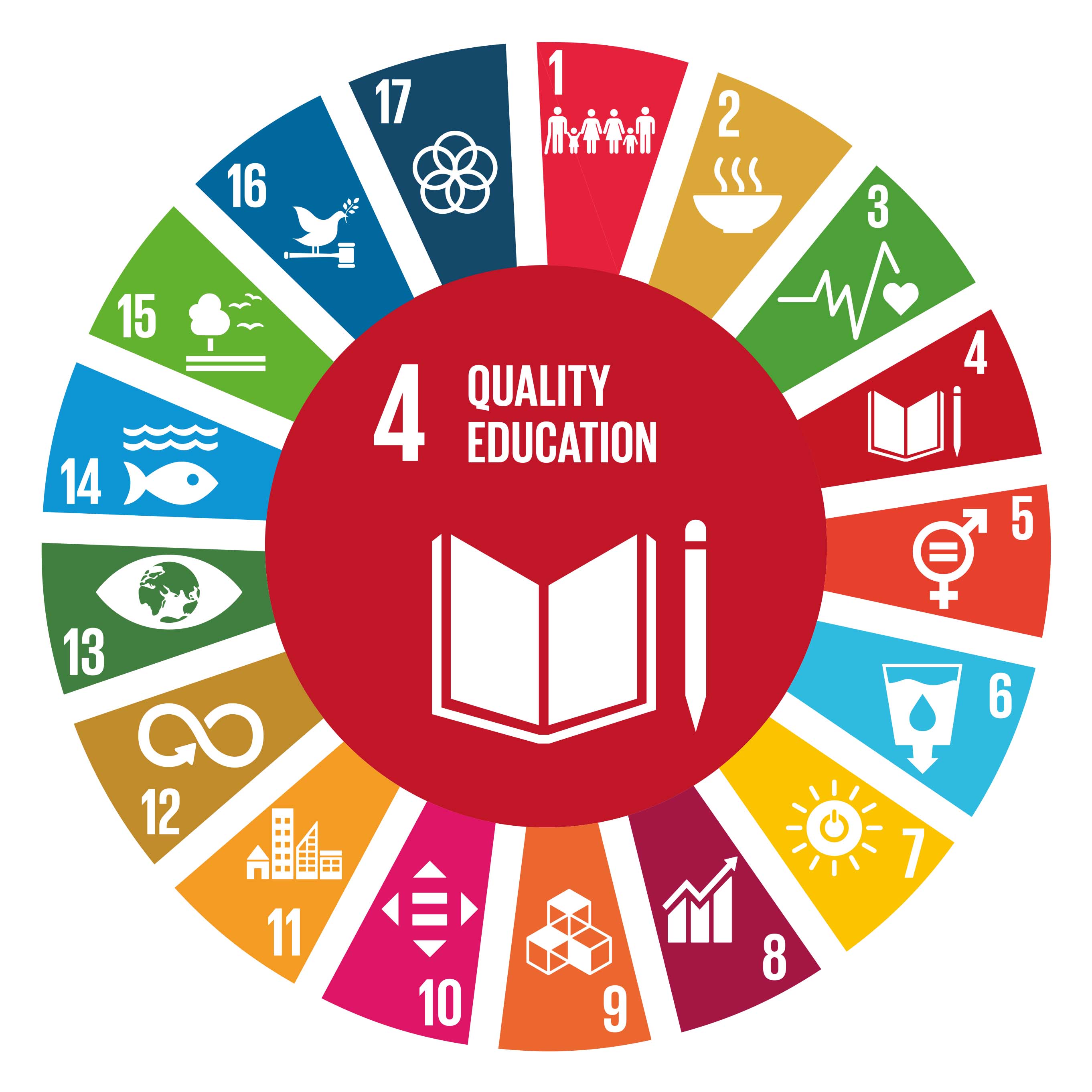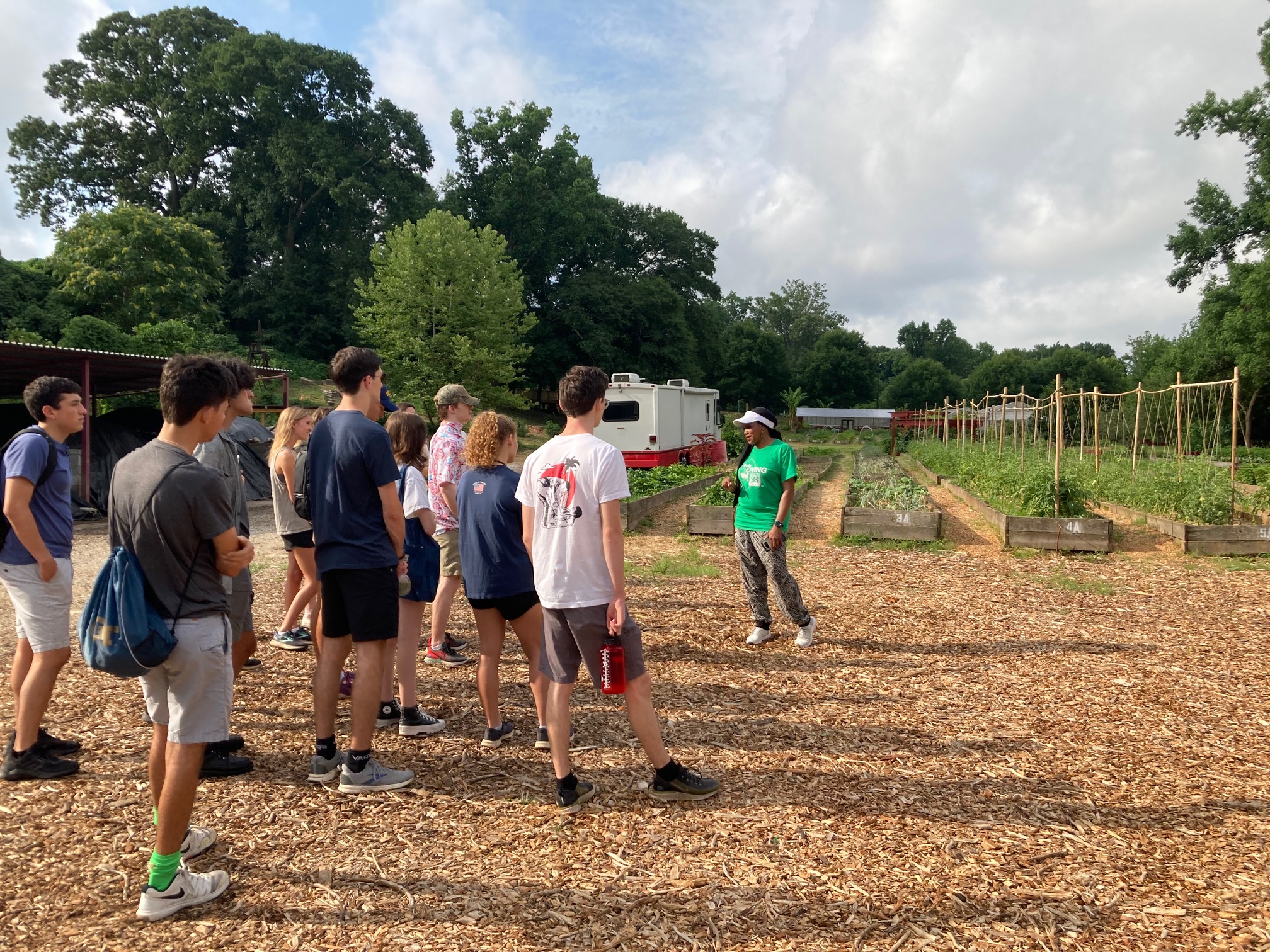Georgia Tech’s Institute Strategic Plan (ISP) states we will “provide all students with transformative learning experiences to grow as creative, ethical, globally aware, technologically sophisticated leaders who can define and solve problems to improve the human condition.”
What do we mean by transformative learning?
While scholar Jack Mezirow is typically credited with coining the term "transformative learning" in 1978, his approach extends and complements similar work from other educational theorists including John Dewey, David Kolb, and Paolo Freire. While interpretations vary, most scholars understand transformative teaching and learning to include experiences that lead students to challenge and reframe attitudes, assumptions and perspectives in ways that impact their future beliefs and actions.
Teaching with the UN Sustainable Development Goals and other high impact practices help us fulfill the strategic plan's goal to increase access to transformative learning experiences at Georgia Tech.
How is transformative teaching and learning related to teaching with the SDGs?
According to UNESCO (2023), Education for Sustainable Development (ESD) "gives learners of all ages the knowledge, skills, values and agency to address interconnected global challenges including climate change, loss of biodiversity, unsustainable use of resources, and inequality. It empowers learners of all ages to make informed decisions and take individual and collective action to change society and care for the planet. ESD is a lifelong learning process and an integral part of quality education. It enhances the cognitive, socio-emotional and behavioral dimensions of learning and encompasses learning content and outcomes, pedagogy and the learning environment itself.”
ESD is grounded in cognitive, socio-emotional, and behavioral dimensions of learning that lead to changes in understanding, perspectives, attitudes, and actions. Experiential learning that transforms learners in ways that lead to changes in behavior is at the core both ESD and transformative learning more broadly. See Michel et al. (2020) for an in-depth discussion of transformative sustainability learning and its relationship to transformative learning theory.
How are transformative learning and sustainability learning connected?
Transformative Teaching and Learning “generates new mindsets, new perspectives, and new behaviors. Thus, inherent in the purpose of good [Education for Sustainability] is transformative learning” (Michel et al., 2020, p. 185).
How do High-Impact Practices (HIPs) fit in?
Key elements of transformative learning experiences include collaborative group work, substantive interactions with diverse groups of people, reflection, and the integration of scholarly and practical experiences. These key elements can be found within what are referred to as High-Impact Practices, or HIPs—teaching and learning practices that decades of research in higher education has demonstrated offer significant educational benefits for students. The eleven HIPs described by AAC&U represent specific strategies for experiential learning with transformative potential. For example, Service or Community-Based Learning offers students opportunities to challenge their assumptions and preconceived ideas by learning within the context of “real world” initiatives. Students often describe well-designed community-engaged learning as “life-changing” and can articulate changes in attitudes, perspectives, and understanding that resulted.
Learn more about Georgia Tech’s Transformative Teaching and Learning Initiatives.
Learn more about Georgia Tech’s Sustainability Education initiatives.
 SDG Target 4.7: Quality Education highlights Education for Sustainable Development, which is key to advancing all 17 SDGs.
SDG Target 4.7: Quality Education highlights Education for Sustainable Development, which is key to advancing all 17 SDGs.

GT iGniTe students are introduced to community-engaged learning and research opportunities during a visit with Westside partner organizations.
References
Mezirow, J. (1978). Perspective transformation. Adult education, 28(2), 100-110.
Michel, J. O., Holland, L. M., Brunnquell, C., & Sterling, S. (2020). The ideal outcome of education for sustainability: Transformative sustainability learning. New Directions for Teaching and Learning, (161), 177-188. https://doi.org/10.1002/tl.20380
UNESCO (2023). What you need to know about education for sustainable development. https://www.unesco.org/en/education-sustainable-development/need-know